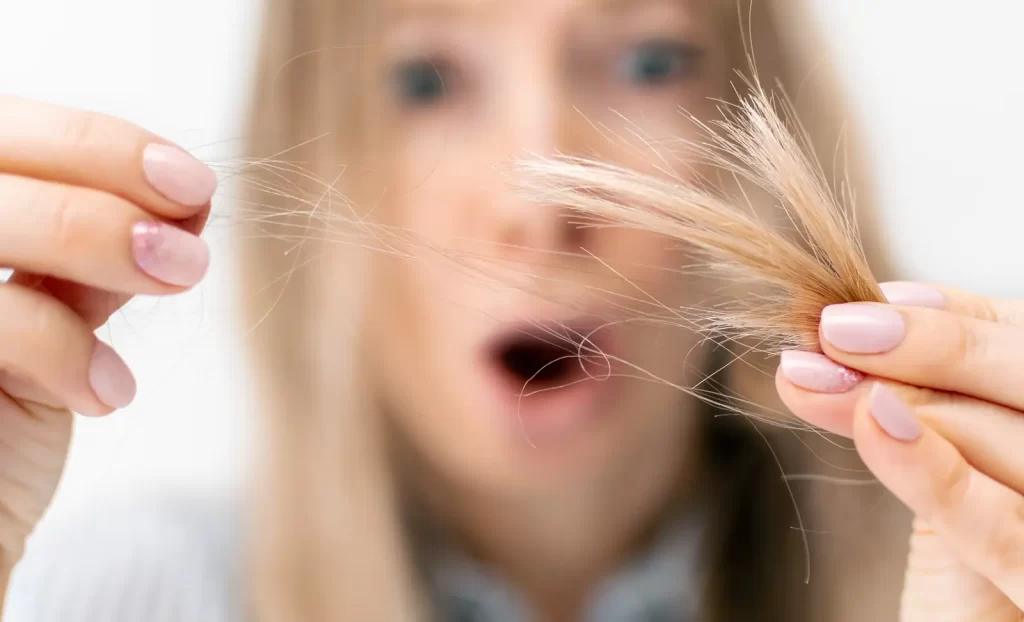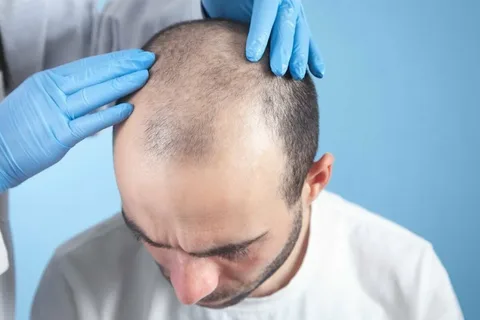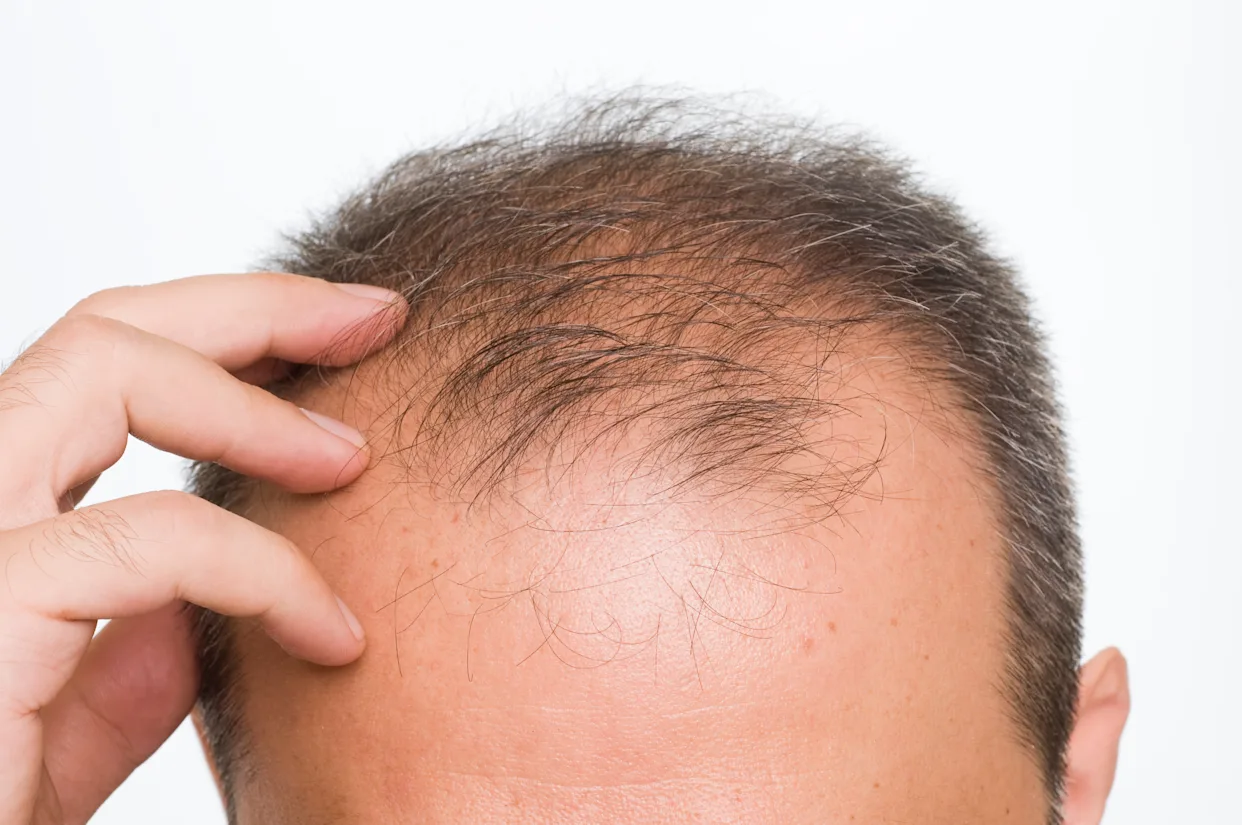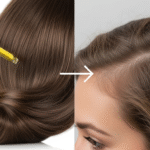Summary: Hypertension Cause Hair Loss? Hypertension, or high blood pressure, occurs when the force of blood against the arteries is consistently too high, often due to factors like poor diet, stress, and genetics. While it may not directly cause hair loss, reduced blood flow and stress from hypertension can contribute to thinning hair. Certain medications …
Summary:
Hypertension Cause Hair Loss? Hypertension, or high blood pressure, occurs when the force of blood against the arteries is consistently too high, often due to factors like poor diet, stress, and genetics. While it may not directly cause hair loss, reduced blood flow and stress from hypertension can contribute to thinning hair. Certain medications for high blood pressure may also have hair loss as a side effect. Managing hypertension through a healthy diet, regular exercise, stress management, and appropriate medication can help prevent hair loss, alongside adopting hair care practices to support hair health.

Table of Contents
Introduction
Hypertension is a common condition that affects millions worldwide, but can hypertension cause hair loss? If you’re struggling with both high blood pressure and thinning hair, you might be wondering if there’s a connection. This article will explore the science behind hypertension-induced hair loss, its causes, and effective ways to manage both. By reading this, you’ll gain valuable insights to protect your hair and control your blood pressure.
What Is Hypertension and How Does It Affect the Body?

Definition and Causes of Hypertension
Hypertension, often referred to as high blood pressure, occurs when the force of the blood against the walls of your arteries is consistently too high. Blood pressure is measured in millimeters of mercury (mmHg), and it is classified into two numbers: systolic (pressure when the heart beats) and diastolic (pressure when the heart rests). Hypertension is usually defined as a reading consistently higher than 130/80 mmHg.
Several factors can contribute to hypertension:
- Genetics: Family history of high blood pressure.
- Poor Diet: High salt and fat intake can increase blood pressure.
- Stress: Chronic stress can elevate blood pressure.
- Lifestyle Choices: Lack of physical activity, smoking, and alcohol consumption.
How Hypertension Impacts Other Health Conditions
Hypertension is known to strain various organs in the body. Over time, it can lead to severe conditions like:
- Heart disease
- Stroke
- Kidney damage
- Vision problems
Understanding these risks is important for managing both your hypertension and overall health.
The Science Behind Hair Loss: How It Happens
What Causes Hair Loss?
Hair loss is a complex process influenced by various factors, including:
- Genetics: Androgenetic alopecia, also known as male or female pattern baldness, is the most common cause.
- Hormonal Imbalances: Changes in hormones, particularly during pregnancy, menopause, or thyroid issues, can lead to hair shedding.
- Stress: Physical and emotional stress can disrupt hair growth cycles, leading to temporary hair loss (telogen effluvium).
Types of Hair Loss
There are several types of hair loss, including:
- Androgenic Alopecia: Caused by genetics and hormonal factors.
- Telogen Effluvium: Often triggered by stress, illness, or medication.
- Alopecia Areata: An autoimmune condition where the immune system attacks hair follicles.
The Link Between Hypertension and Hair Loss

Does High Blood Pressure Directly Cause Hair Loss?
While hypertension itself may not directly cause hair loss, it can impact hair health in several ways:
- Reduced Blood Flow: High blood pressure can lead to restricted blood vessels, which may reduce blood flow to the scalp and hair follicles, weakening hair growth.
- Stress: Chronic stress caused by hypertension can increase cortisol levels, a hormone linked to hair shedding.
Medications for Hypertension and Their Impact on Hair
Certain medications used to treat hypertension, such as beta-blockers and ACE inhibitors, can contribute to hair loss as a side effect. These medications may interfere with the hair growth cycle, leading to thinning or shedding.
Stress and Hypertension: A Dangerous Combination
Chronic stress is a significant contributor to both hypertension and hair loss. When the body is under stress, it produces higher levels of cortisol, a hormone that can disrupt the natural hair growth cycle. This results in hair entering the shedding phase prematurely, leading to noticeable hair thinning.
Managing Hypertension and Preventing Hair Loss
Effective Ways to Control Hypertension
Managing high blood pressure is crucial not only for your heart health but also for preserving your hair. Here are some ways to control hypertension:
- Healthy Diet: Focus on a balanced diet with low sodium, healthy fats, and plenty of fruits and vegetables.
- Exercise Regularly: Physical activity helps improve circulation and manage blood pressure.
- Stress Management: Incorporate relaxation techniques such as meditation, deep breathing, and yoga.
- Medication: Follow your doctor’s advice on medication, and never stop taking prescribed medications without consulting your healthcare provider.
Hair Care Tips for Those with Hypertension
Caring for your hair while managing hypertension involves both medical treatment and lifestyle changes:
- Gentle Hair Care: Avoid harsh treatments, such as excessive heat or chemical processing, which can further damage thinning hair.
- Balanced Diet for Hair Health: Consume foods rich in vitamins like biotin, vitamin D, and iron to support healthy hair growth.
- Hair Growth Supplements: Consider supplements with ingredients like biotin, zinc, and omega-3 fatty acids to promote stronger hair.
H3: When to Seek Professional Help for Hair Loss
If you’re experiencing significant hair thinning or bald patches, it’s essential to consult a dermatologist. They can help identify whether hypertension or other factors are contributing to your hair loss. Treatments like minoxidil, corticosteroid injections, or platelet-rich plasma (PRP) therapy may be recommended.
Expert Tips and Recovery Timeline for Hair Growth
How Long Does It Take to Regrow Hair After Hypertension-Related Hair Loss?
Hair regrowth varies depending on the severity of the hair loss and the measures taken to manage hypertension. Typically, once hypertension is controlled, it may take 3-6 months to see noticeable hair regrowth. However, the timeline can be faster or slower depending on individual factors such as stress levels and overall health.
Managing Hair Health Alongside Hypertension: Expert Recommendations
To enhance hair recovery:
- Maintain a balanced diet rich in vitamins and minerals.
- Follow your hypertension management plan consistently.
- Seek expert treatment for hair loss if lifestyle changes alone do not improve the condition.
FAQs
Can hypertension cause permanent hair loss?
Hair loss caused by hypertension or related medications is usually reversible with proper treatment. However, if left untreated for a long time, it may lead to permanent thinning.
Are there any natural remedies for hypertension-related hair loss?
While lifestyle changes such as reducing stress, eating a balanced diet, and using gentle hair care products can help, medications and professional treatments may be necessary for significant hair loss.
Should I stop my hypertension medication if I experience hair loss?
Never stop your hypertension medication without consulting your doctor. The benefits of controlling blood pressure outweigh the potential side effects. Your doctor may recommend alternative medications with fewer side effects on hair.
Conclusion
Summing Up the Hypertension-Hair Loss Link
While hypertension itself may not directly cause hair loss, the effects of high blood pressure and the medications used to treat it can contribute to thinning hair. By managing your hypertension and taking steps to protect your hair, you can prevent further hair loss and promote healthy hair growth.
Ready To Take Your Next Step
Book a Consultation Today
If you’re experiencing hair loss and managing high blood pressure, it’s essential to address both issues with professional guidance. Book a consultation with Dr Uzma Irfan today to receive personalized advice and treatment options tailored to your needs.






